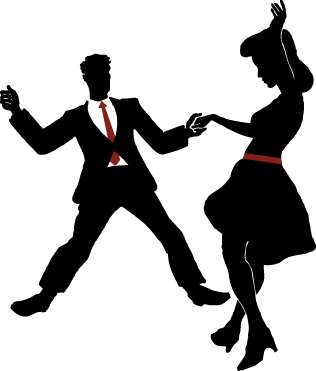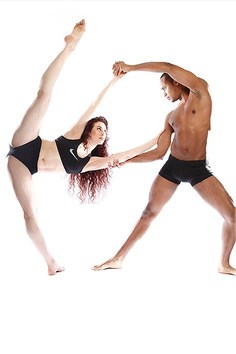|
The world of dance is a mesmerizing realm of expression, creativity, and physicality, offering an avenue for individuals to communicate, connect, and find solace in their bodies' movements. While dance has long been celebrated for its ability to convey emotions, tell stories, and evoke artistry, it has also emerged as a powerful therapeutic tool for individuals with disabilities. This innovative approach to healthcare not only enhances physical well-being but also nurtures emotional and psychological development, fostering a holistic sense of self. Research in the field of dance therapy has showcased the transformative potential of dance for individuals with disabilities. Studies and clinical trials have consistently highlighted the multifaceted benefits of dance therapy, offering insights into its role in rehabilitation, self-expression, and overall well-being. A 2021 study published in the National Library of Medicine found that individuals with Parkinson's disease who participated in dance therapy experienced significant improvements in balance, mobility, and quality of life. Additionally, a 2018 review in the Annals of Psychiatry and Mental Health emphasized how dance therapy can positively impact individuals with autism spectrum disorders, aiding in social interaction and communication skills. The Therapeutic Benefits of Dance Physical Rehabilitation and Improvement
Emotional Well-being
Improved Cognitive Function
Dance as Inclusive Therapy Adaptive Dance Programs
Inclusive Dance Performances
Challenges and Considerations Accessibility
Training and Certification
Dance is a powerful and inclusive tool that can significantly improve the quality of life for individuals with disabilities. By addressing physical, emotional, and cognitive needs, dance offers a holistic approach to rehabilitation and personal growth. It not only promotes physical well-being but also fosters a sense of belonging, self-worth, and creativity. To make dance therapy even more accessible, we must continue to raise awareness, provide resources, and advocate for its integration into mainstream healthcare and education systems. By doing so, we can unlock the transformative potential of dance for individuals with disabilities and create a more inclusive and enriching world for all. References: https://www.ncbi.nlm.nih.gov/pmc/articles/PMC8287013/ https://www.jscimedcentral.com/jounal-article-info/Annals-of-Psychiatry-and-Mental-Health/Dance-Therapy-for-Children-and-Adults-with-Autism-Spectrum-Disorder-or-other-Developmental-Disability%3A-Literature-Review-of-Present-Research-7651  Dr. Rachelle Sultana, PhD, AEP, M Clin Ex Phys, B Ex Sp Sci Rachelle Sultana is a highly qualified expert in exercise physiology and clinical exercise. With a PhD and multiple degrees, she combines academic knowledge with practical experience to promote a healthier lifestyle. Follow her on LinkedIn | Instagram
0 Comments
3 Items this week:
A SHOW WITH YOUR TEACHERS Prepare to be dazzled and entertained by "Music of the Century! Take a journey from back to the 1920s all the way through to the 2020s. 100 years of hits! This entertaining show is filled with LIVE singing, Latin dancing, rock n roll, foxtrot and more! We are certain you'll be tapping your feet. Both Jess and Anita will be in this so it will make it that bit more engaging for you. Pheonix Theatre Elwood 8pm 15 October 2022 Get your tickets now at Eventbrite below: https://www.eventbrite.com/e/424064978767 A TV SHOW YOU SHOULD WATCH I often talk about the benefits of dance to your health. If you have not yet seen it, then there will be a program on the ABC about an experiment to test this theory. Take a look at Keep On Dancing on ABC tomorrow night - https://iview.abc.net.au/show/keep-on-dancing. CLASSES THIS WEEK Monday 7:30pm: Salsa Tuesday 6:30pm: Samba Wednesday 7:30pm: Rock and Roll Thursday 6:30pm: Quick Step (the swing of ballroom) See you on the dance floor Clint We are approaching that time of year where people start to stay inside more and become less active. This is never good for your health – physical or mental. A good solution is to lock in a habit or routine that is both physical and social.
And as I am sure you guessed, dance is indeed both physical and social. So make sure you make your dance lessons part of your weekly routine now. You can also make the social dances on Monday and Wednesday part of the routine (they are part of the group lesson anyway). Also, if you are having troubles with your private lesson, then we do have some new options. Check out this page - https://www.destinedance.com.au/lesson-options.html - and look at the special options at the bottom of the page. The group lesson this week are:
See you on the dance floor Clint When you learn dance, it is likely for only one or two reasons. Usually it is for fun. You might have seen it for a while and wanted to do it yourself. Or maybe it was simply because you thought you needed a hobby and dance seemed as good as any other. However, there can be other benefits that you never expected.
Love life When you can dance you have an automatic mechanism to meet people of the opposite (or even the same) sex. That can by default lead to romance. This can especially be so for men. One Destine Dance student recently told me about how he was at a bar where there was music playing that he could dance to (he liked Lindy Hop and the bar was playing classic rock that suited) and a woman randomly happened to ask if he could dance. He then dished out a quick dance lesson to a couple women and had others asking to dance with him. While this culminated in one woman asking to go back to his place, he did the gentlemanly thing and declined because she had had a bit too much to drink. Nevertheless, this is anecdote shows how dance can indeed boost your love live. But you need not be for singles only. Better social life When you can dance, you now have something else you can do when going out. This can be ideal for couples. Sometimes you can be stuck at home doing the same thing and not knowing what to do. There are always dance events on somewhere. You can always go out dancing. This can help with any relationship that needs something extra to it. This benefit is applicable to singles too of course. I have used dance as a way to connect with people when travelling. Dance is fairly harmonised these days so what you learn here you can use around the globe. Whenever I land in a new place, I find the local dance event, I go there and then I am instantly meeting new people. You seem more sophisticated The fact is that we assume people who can dance are just that bit more sophisticated. When you go to a wedding or similar event with a dance floor - or maybe even when you are just out with people and there happens to be a dance floor - you're able to make use of it. These days that is a rarity. When you have that rare skill you just stand out as being more sophisticated. You grow (physically that is) It only takes a few lessons before your teacher will start talking about posture. The act of maintaining your posture in dance will strengthen your postural muscles in general. This will give you better posture all the time. I know one student who was told by his doctor that he was a centimetre taller than he was at the last check up (before he took dance lessons). This all came from his strengthened posture muscles. You drink less When you go out to dance, you have something to do. That means you no longer feel the need to drink as much. This phenomenon is well known. It was one of the reasons why disco became a line dance culture even though it started with partner dancing and almost became the next great wave of partner dancing in western culture. The bar owners noticed how much less people drank when they (partner) danced. This cut into profits, and action was taken to encourage line dancing. You feel better Because of much of the above, you simply feel better in your self. Dance is an excellent way to boost your self esteem and sense of well-being. And there it is - some of the unforeseen benefits of learning to dance. If you have any others, then please share them in the comments below. We're always keen to hear how dance helps people. Many of us know we need to exercise to lose weight. However, to get right to the point, exercise sucks! We need something that is active, but fun. If you don’t like sport so much or feel that it might be hard on the joints, then you need to look elsewhere.
This leads many of us to consider dance as an avenue to weight loss. But just how much energy does dancing burn? The slower types of dance are a lot like walking when it comes to burning energy. The faster dances are a lot like jogging. That means an hour of dancing could be like going for a good walk or a reasonable jog. If you take a couple classes a week and then go out to dance as well, then you have a pretty good weekly work out. However, that is just the energy burned at the time. Dance will increase your strength by building muscles and tone. The act of building muscle also burns energy so you will get benefits even when you are not dancing as your body burns energy rebuilding itself. It is about looking good no? Most of us want to lose weight so we look better. Dance will improve your posture and your movement. That will mean that as well as losing weight, you will also look better because of the dancers posture you will now have. But health is important. Dance, by building muscle, providing cardio exercise and improving posture, will provide health benefits that will augment the benefits that come from losing weight. You can expect grater bone density, grater movement of joints and health from better poise. Dance is thus an ideal part of any weight loss program. Just feeling better. Weight loss, buy improving health and appearance, makes us feel better. If you are looking for that general sense of wellness, then dance is again ideal. The social nature of it, it’s opportunity to learn, the endorphins from the activity and its sense of fun, all combine to make dance an ideal hobby for those simply wanting to feel better. When you feel better, weight loss becomes easier too. Based on the above, dance is indeed going to help with weight loss. Considering how dance is social and fun, it makes it more enticing than many other forms of exercise. So, you are much more likely to stick at dance than you are at the alternatives. However, dance also offers benefits beyond weight loss. Benefits that augment the effects of weight loss. If you want to consider dance as a way of losing weight, then try a free trial lesson. This topic has been covered to an extent on this page; however, it is such an interesting topic that it deserves attention here as well. There are 4 aspects to dance helping you:
PhysicalityDance is not the most strenuous of activities. However, it does demand complex movement and good posture. By simply working on moving well as you dance and maintaining good posture, you will increase your mobility and strength of the muscles you use to move. The end effect is a healthier body that moves with ease. CognitiveDance is surprisingly good for your brain. When you dance you need to listen to the music, be aware of your partner, be aware of others on the floor and move your body. These actions all use different parts of your brain. Because these different parts are working in parallel, it is excellent brain exercise. This is why dance is so good at fighting dementia. AttitudinalMany people make the comment that after a night of dancing they are alert, and need time to wind down before bed. Dance simply makes you feel good. The combination of physical and mental stimulation it offers leaves one feeling much better. Dance will make you a happier person. SocialWe are talking about partner dance here. That means it is at least you and another person. Thus it is social from the get go. However, you often learn in groups, you will likely dance with a number of people in a night and you simply start talking with those around you. Dance will provide you with many social connections, and leave you a happier person for that reason.
|
AuthorThis blog is written by the staff at Destine Dance and is inspired by the questions and challenges faced by our students Archives
July 2024
Categories
All
|


 RSS Feed
RSS Feed